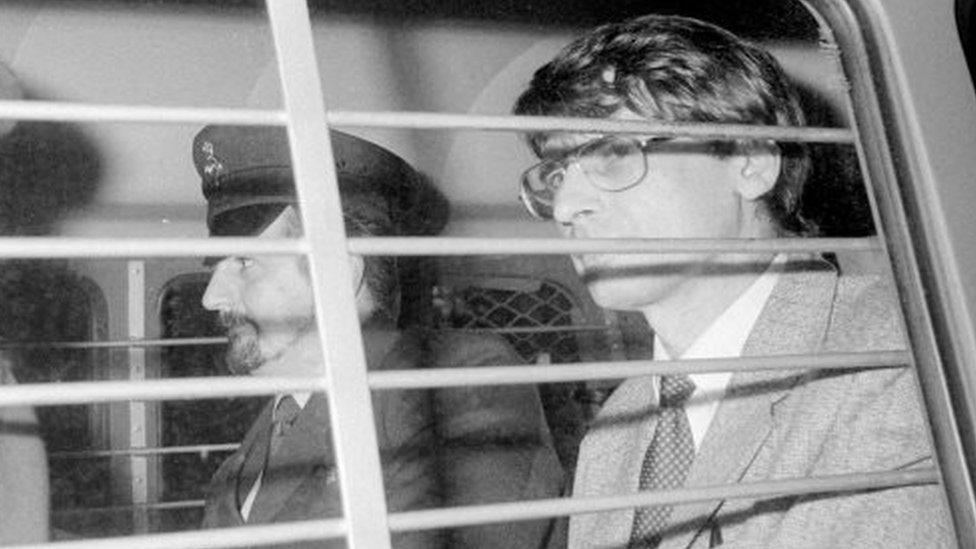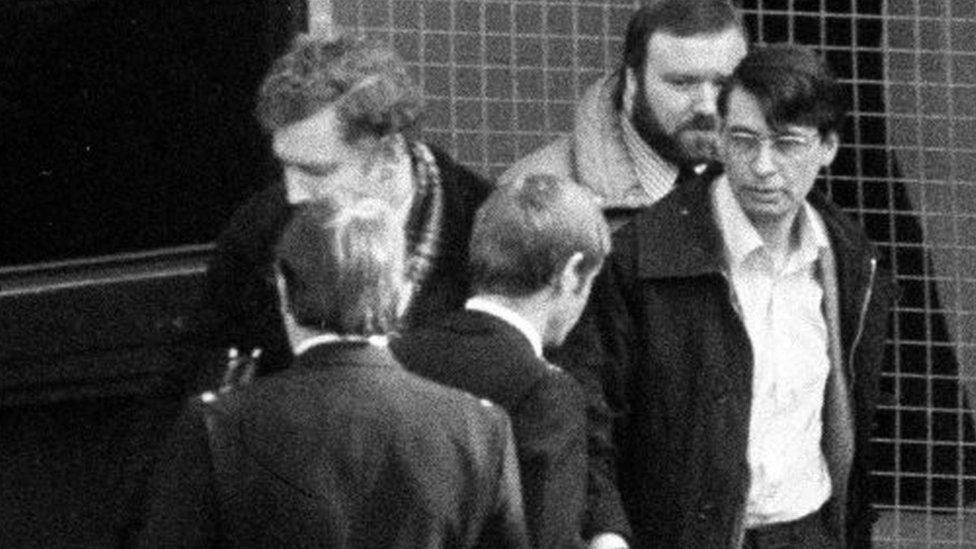Dennis Nilsen: Serial killer dies in prison aged 72
- Published

Dennis Nilsen, on the right hand side, lured his victims to his flat before killing them, often by strangulation
Serial killer Dennis Nilsen, who admitted killing at least 15 people in the 1970s and 1980s, has died in prison.
The 72-year-old was jailed for life in 1983, with a recommendation he serve at least 25 years.
The former civil servant murdered and dismembered several of his victims, most of them homeless young gay men, at his home in Muswell Hill, north London.
He was convicted of six counts of murder and two of attempted murder.
The Prison Service said Nilsen, who was born in Fraserburgh in Aberdeenshire, died at HMP Full Sutton near York.
The death of Nilsen will be investigated by the Prisons and Probation Ombudsman, as is normal for custody deaths, a spokesman added.
Nilsen was 37 when he was arrested, after human remains were found in a blocked drain at his home.
He and other tenants in his block of flats had complained to the landlord about the smell from the drains. An inspection by a plumber found pipes packed with human flesh.
During his trial at the Old Bailey, the court heard the remains of three bodies were found at his home and bones from at least eight bodies were found at his previous address in Melrose Avenue, Cricklewood in north-west London.

The death of Nilsen - wearing glasses - will be investigated as is normal for custody deaths
He met his victims, all of them men, in a pub and he would take them back to his flat for a drink. Most were homeless, some were homosexuals and some were prostitutes.
His trial heard how Nilsen strangled many of his victims with a tie and then disposed of the bodies, either through hiding them under the floorboards or by cutting up the body and flushing parts down the toilet.
On many occasions, he would sit with their bodies for days before he dismembered them.
Nilsen admitted killing at least 15 people, but he was convicted of the murders of six men:
Kenneth James Ockenden
Martyn Brandon Duffey
William David Sutherland
Malcolm Barlow
John Peter Howlett
Stephen Neil Sinclair
There were others who survived.
Mr Nilsen spent 11 years in the Army, with some time spent in the catering corps where he learned certain butchery skills.
He later served briefly as a probationary police constable before becoming a security officer with the Manpower Services Commission in 1974.